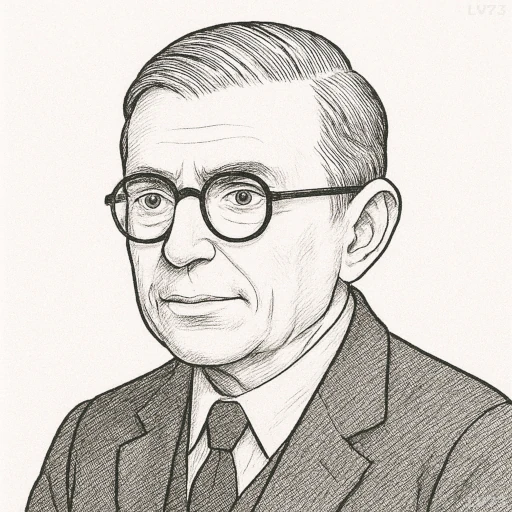“Everything has been figured out, except how to live.”

- June 21, 1905 – April 15, 1980
- Born in France
- Philosopher, novelist, playwright
table of contents
Quote
“Everything has been figured out, except how to live.”
Explanation
In this quote, Sartre critiques the intellectual and technological advancements of society, highlighting the paradox that, while knowledge and understanding may have expanded exponentially, the essential question of how to live authentically and meaningfully remains unresolved. Humanity has made great strides in fields such as science, technology, and philosophy, uncovering many of the mysteries of the universe. However, despite these achievements, Sartre points out that the existential dilemma—how to live a fulfilled, authentic life in a world without inherent meaning—has not been adequately addressed. The quote reflects the core of Sartre’s existentialism, which emphasizes that meaning is not something we discover or inherit, but something we must create for ourselves through our choices and actions.
Sartre’s existential philosophy rejects the idea of predetermined purpose or an inherent structure to life, insisting instead that individuals are free to define their own meaning and must face the responsibility of doing so. The statement suggests that, while society has managed to solve many technical and practical questions—how to build, how to cure diseases, how to navigate the physical world—it has not provided any definitive answers to the question of existence. What does it mean to live a good or authentic life? How does one cope with the uncertainty and freedom that comes with an awareness of life’s meaninglessness?
In modern times, this quote resonates with the challenges of modern life—despite unprecedented access to information, resources, and technological advancements, many people still grapple with questions of purpose, identity, and meaning. In a world where traditional answers—whether religious, philosophical, or social—no longer provide the same sense of certainty, Sartre’s reflection underscores the importance of individual freedom and the continuous search for meaning. It suggests that, while much has been figured out, the true challenge lies in creating a life that feels authentic and purposeful in the face of an uncertain world.
Would you like to share your impressions or related stories about this quote in the comments section?
